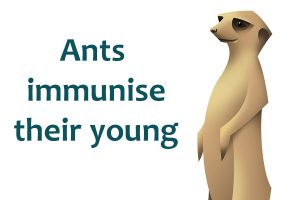To even the most casual observer, it is clear that people are not homogenous in their behaviour, and that this goes beyond possible nurture influences such as cultural upbringing. Individuals vary in their behaviour in a consistent manner; some people are generally more aggressive, friendly and adventurous in every aspect of their lives. So obvious is this observation that we even have a word for it – personality. Likewise, anyone who has spent any significant amount of time in the company of animals will almost certainly acknowledge that they are not all the same. The extent to which this is apparent varies from species to species, of course, but the observation is not a revolutionary one. And yet, until relatively recently the concept of ‘personality’ in non-human animals was revolutionary. And it has had to work hard to shake off the criticism of anthropomorphism and pseudoscience.
It was long assumed that animals were infinitely plastic in their behaviour, being able to respond adaptively to all environments. When people actually started to look, however, it became apparent that this wasn’t the case. Individuals showed substantial variation in their responses to certain events and environments, and these responses were not always adaptive. There was a strong correlation however, in the responses of a single individual over time. Personality, you say?
Continue reading →


